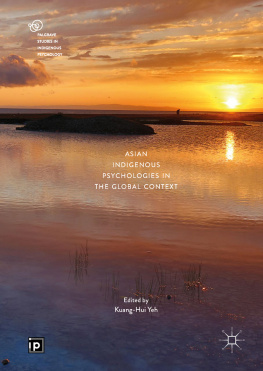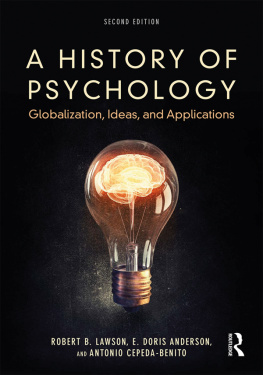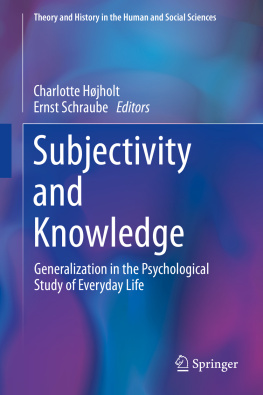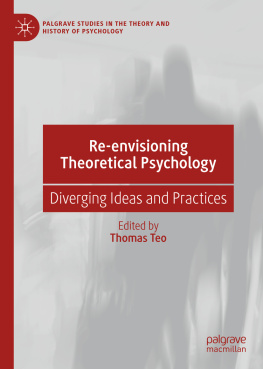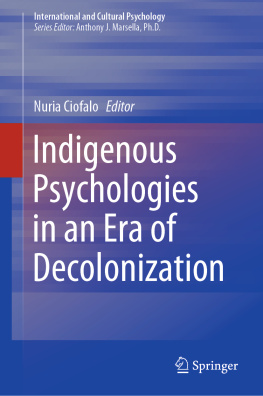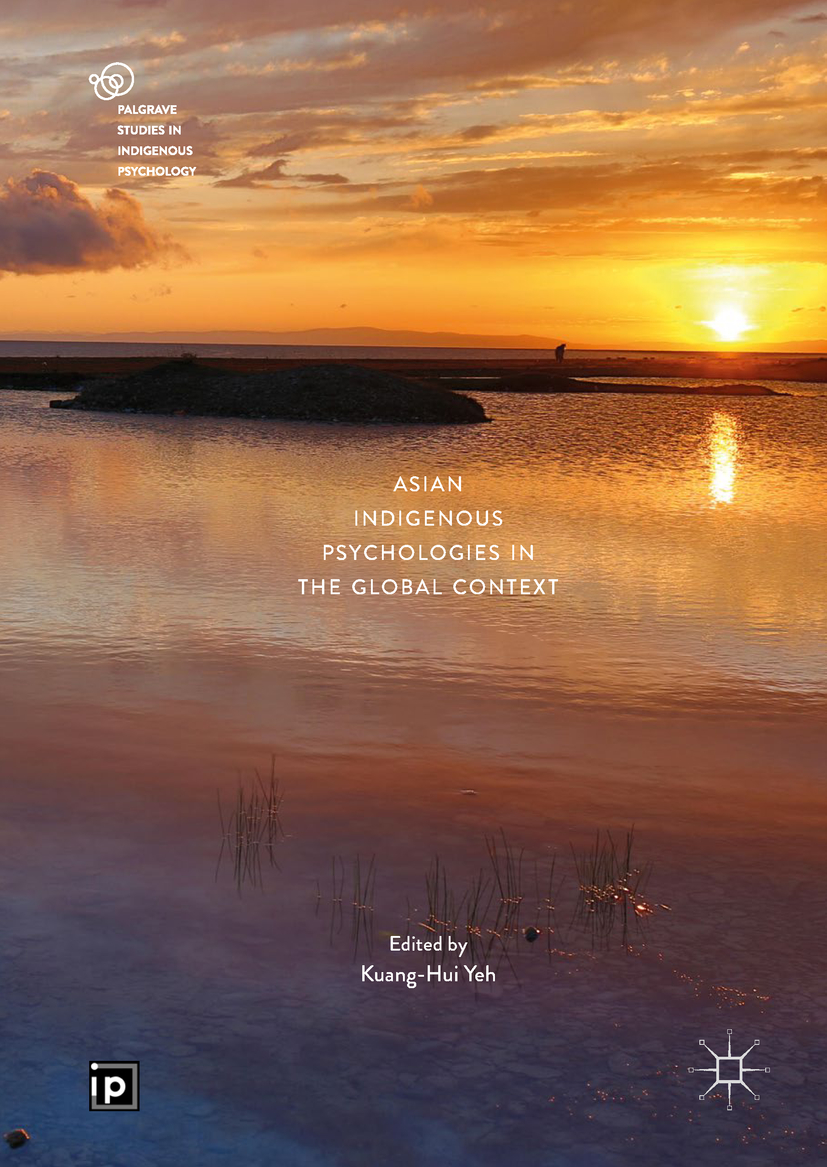Palgrave Studies in Indigenous Psychology
Series Editors
Louise Sundararajan
Independent Researcher, Rochester, NY, USA
Kuang-Hui Yeh
Academia Sinica, Taipei, Taiwan
Alvin Dueck
School of Psychology, Fuller Theological Seminary, Pasadena, CA, USA
Thomas Teo
Department of Psychology, York University, Toronto, ON, Canada
Jeffrey Paul Ansloos
Ontario Institute for Studies in Education, University of Toronto, Heidelberg, Baden-Wrttemberg, Germany
Palgrave Studies in Indigenous Psychology aims to introduce psychologists and social scientists to the indigenous psychology movement and to major theoretical and practical issues discussed in this tradition. It publishes books that make significant contributions to psychology in the era of globalization by asking important questions about the discipline, profession, and practice of psychology. The series critically appraises cultural assumptions and theoretical frameworks; sheds light on the dialectics of the universal and the particular in human subjectivity; goes beyond Western psychology in researching the ontological, epistemological, ethical, spiritual, and aesthetic dimensions of the mental life; addresses issues of structural oppression in the globalizing era; and explores possibilities for a more equitable global psychology. Given the interdisciplinary nature of indigenous psychology, this book series welcomes contributions from all disciplines in the social sciences and the humanities. In particular, it welcomes scholarship that embodies a critical thinking that is informed by the local knowledge, and inspired by the spiritual strivings of a culture.
More information about this series at http://www.palgrave.com/gp/series/15445
Asian Indigenous Psychologies in the Global Context
Editor
Kuang-Hui Yeh
Institute of Ethnology, Academia Sinica, Taipei, Taiwan
Department of Psychology, National Taiwan University, Taipei, Taiwan
Palgrave Studies in Indigenous Psychology
ISBN 978-3-319-96231-3 e-ISBN 978-3-319-96232-0
https://doi.org/10.1007/978-3-319-96232-0
Library of Congress Control Number: 2018948810
The Editor(s) (if applicable) and The Author(s) 2019
This work is subject to copyright. All rights are solely and exclusively licensed by the Publisher, whether the whole or part of the material is concerned, specifically the rights of translation, reprinting, reuse of illustrations, recitation, broadcasting, reproduction on microfilms or in any other physical way, and transmission or information storage and retrieval, electronic adaptation, computer software, or by similar or dissimilar methodology now known or hereafter developed.
The use of general descriptive names, registered names, trademarks, service marks, etc. in this publication does not imply, even in the absence of a specific statement, that such names are exempt from the relevant protective laws and regulations and therefore free for general use.
The publisher, the authors and the editors are safe to assume that the advice and information in this book are believed to be true and accurate at the date of publication. Neither the publisher nor the authors or the editors give a warranty, express or implied, with respect to the material contained herein or for any errors or omissions that may have been made. The publisher remains neutral with regard to jurisdictional claims in published maps and institutional affiliations.
Cover image: Originoo Image Technologies Co. Limited/Alamy Stock Photo
This Palgrave Macmillan imprint is published by the registered company Springer Nature Switzerland AG
The registered company address is: Gewerbestrasse 11, 6330 Cham, Switzerland
Foreword: Neuroscience Versus Cultural System: Direction of Research for Cultural Psychology
The Taiwanese Psychological Association invited Prof. Shinobu Kitayama from the University of Michigan, USA, to give a keynote speech in its annual meeting held at Cheng-Kung University, Tainan, from September 1516, 2016. Professor Kitayama is an old acquaintance of mine; we first met 20 years ago at Kyoto University in Japan when the Asian Association of Social Psychology held its bi-annual conference. Before that, he published a widely cited article on the independent self and interdependent self (Markus & Kitayama, 1991), and became one of the most famous Asian psychologists in the international community of psychology.
A Confrontation Between Two Approaches in Cultural Psychology
Professor Kitayama was invited by the Department of Psychology, National Taiwan University, to give a lecture on Research of Culture Neuroscience on Emotion: Achievement and Future Direction on September 18th, 2016. Subsequently, I made a 30-minute comment on his presentation entitled, Neuroscience or Cultural System: Direction of Research for Cultural Psychology , in which I mentioned his commentary on previous research related to individualismcollectivism published in a special issue of Psychological Bulletin (Kitayama, 2002). He had indicated that cross-cultural research on psychological process by any instrument of measurement should be interpreted from a system view of culture. Unfortunately, Kitayama himself has since moved away from this approach. He and his colleagues have compiled a great deal of empirical data in the field of cross-cultural research on neuro-imaging with fMRI.
This is totally the wrong direction if we are to understand the subjectivity of East Asian cultures. This reductionist approach tries to capture the cultural differences by reducing them to some pan-cultural dimensions measured by either a paper-and-pencil instrument or fMRI. But the accumulation of fragmentary data cannot provide a whole picture of the cultural system (Hwang, 2015). I will begin my arguments with a brief review on the weakness of previous research on individualismcollectivism.
Positivist Research on Individualism and Collectivism
The most popular culture theory, which has been widely used for cross-cultural comparison is the research paradigm of individualism and collectivism. Hofstede (1980), a well-known Dutch organizational psychologist, was the first to conduct research on individualismcollectivism. When he was a director in the department of human resource management at IBM, Hofstede constructed a scale of 32 items to measure work goals or values. He administered this scale to equivalent and stratified samples of IBM staff in 40 countries, calculated means of their endorsement on 32 work values for samples from each country and created a correlation matrix amongst the 32 average nation-values. Four factors were thus obtained as a result of factor analysis: individualism, power distance, masculinity and uncertainty avoidance. Factor scores of the 40 countries were marked to show their positions on the map constituted by any two of these four dimensions, respectively.
His empirical mapping of the worlds 40 major countries on these four cultural dimensions attracted great attention from the psychology community. Inspired by this work, in the following decades many psychologists began to conduct research on related topics. Indeed, a tremendous amount of research has been done on the dimension of individualismcollectivism. For example, an intensive review by Oyserman, Kemmelmeier, and Coon (2002) showed that psychologists had constructed at least 27 distinct scales for measuring individualismcollectivism (INDCOL) tendencies, and completed numerous empirical studies on related topics in the last two decades.

